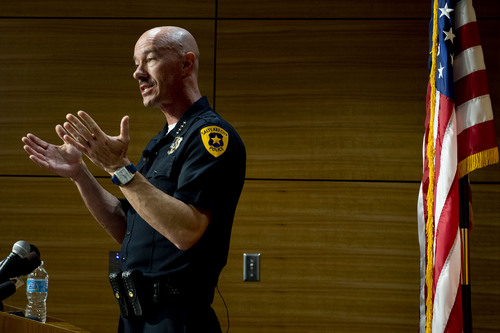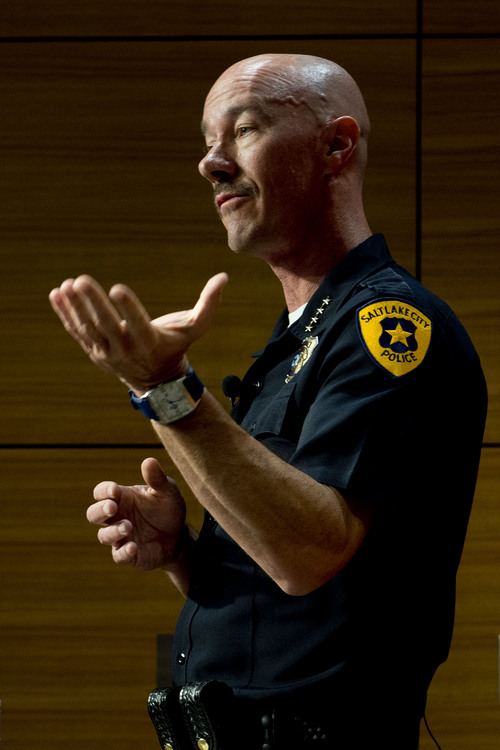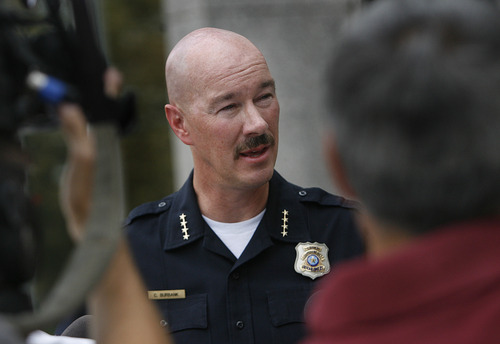This is an archived article that was published on sltrib.com in 2014, and information in the article may be outdated. It is provided only for personal research purposes and may not be reprinted.
Addressing his latest recruits last week, Salt Lake City Police Chief Chris Burbank gave them a choice.
They will work long, hard hours, be forced to make split-second decisions, and be scrutinized much more than the average person — sometimes by millions of people on the Internet — in the aftermath of some of those decisions.
"And if anyone thinks they need to be treated fairly, like the rest of the public, then you should get up and leave now," Burbank told the recruits.
All 26 recruits stayed in their seats, indicating their readiness to undergo 24 weeks of intensive training, followed by a field training program that starts in February.
The department has been no stranger to review this past summer. On June 18, an officer shot and killed a dog, Geist, in its own backyard while looking for a missing child — a shooting that gained much media attention and public outcry.
Then, last month, an officer shot and killed 20-year-old Dillon Taylor outside a 7-Eleven, a shooting that remains under investigation and has kindled protests about police use of force.
But a police officer's difficult role in society does not mean he or she deserves special treatment, Burbank said.
"The number one downfall that is not only in this organization, but throughout the nation and throughout history, is a sense of entitlement that police officers get" because of all the scrutiny, the danger and hard hours, that they deserve to be treated differently, Burbank said. "That is not the case."
The ability to see and review the officer's actions is only increasing, with the growing popularity of body cameras. In fact, this is the first batch of Salt Lake City Police Academy recruits who will be training with the cameras, Burbank pointed out near the beginning of his address.
Burbank also noted that the officers' interactions with the public have the potential to make a tremendous positive impact.
"We won't save the world. We won't even come close," he said. "But you can change the individuals that you interact with."
The five minutes they spend with someone to empathize and understand their situation — even while doing something as simple as taking a stolen-purse report — is incredibly important, the chief stressed.
"I can't overemphasize the importance of your reputation," he said, "and how you interact with people."
Twitter: @mikeypanda







